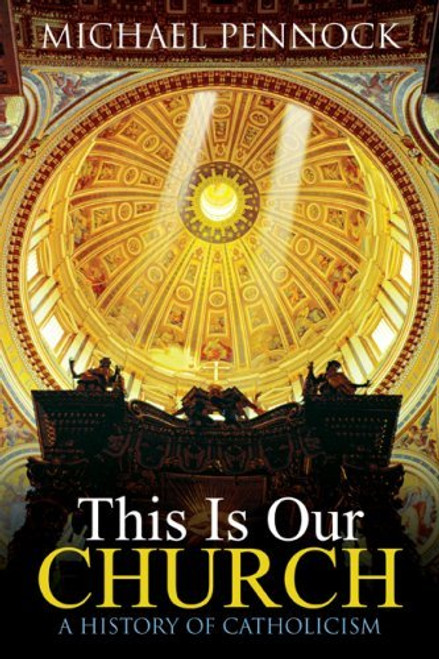-
Format: Paperback
- Pages: 448
- Trim size: 6 x 9 inches
- ISBN: 978-1-59471-750-5
Winner of two Catholic Press Association Awards: Design and Production (Second Place) and History (Honorable Mention).
The star of Bethlehem exemplifies the birth of Jesus, the Wittenberg Door is synonymous with the Protestant Reformation, and “the pill” symbolizes the sexual revolution. It’s “stuff” that helps tell the story of Christianity.
In this unique, rich, and eye-catching book, popular Catholic author and EWTN host Mike Aquilina tells the Christian story through the examination of 100 objects and places. Some, like Michelangelo's Pietà, are priceless works of art. Others, like a union membership pin, don’t hold much monetary value. But through each of them, Aquilina offers a memorable and rewarding look at the history of the Church.
When Catholics tell their story, they don’t just write it in books. They preserve it in memorials, monuments, artifacts, and museums. They build grand basilicas to house tiny relics.
In this stunning book, Aquilina, together with his writer-daughter Grace, show how the history of the Church didn’t take place shrouded in the mists of time. It actually happened and continues to happen through things that we can see and sometimes hold in our hand.
The Christian answer to Neil MacGregor's New York Times bestseller A History of the World in 100 Objects, Aquilina’s A History of the Church in 100 Objects introduces you to:
- The Cave of the Nativity (the importance of history, memory, and all things tangible)
- Catacomb niches (the importance of Rome, bones, and relics of the faith)
- Ancient Map of the World (the undoing of myths about medieval science)
- Stained Glass (representative of Gothic cathedrals)
- The Holy Grail (Romance literature and the emergence of writing for the laity)
- Loaves and fish (a link from Jesus to the sacrament of the Eucharist)
- The Wittenberg Door (Martin Luther and the onset of the Reformation)
Each of these and the 93 other items and places in the book tell part of the Christian story. Each is an essential piece of the story of our salvation.
God makes himself known and accessible through material things, always accommodating himself to our condition. It is, after all, the condition he created for us—spiritual and material—and the form he assumed for our salvation.







